
Iain Dale 7pm - 10pm
5 January 2024, 06:23
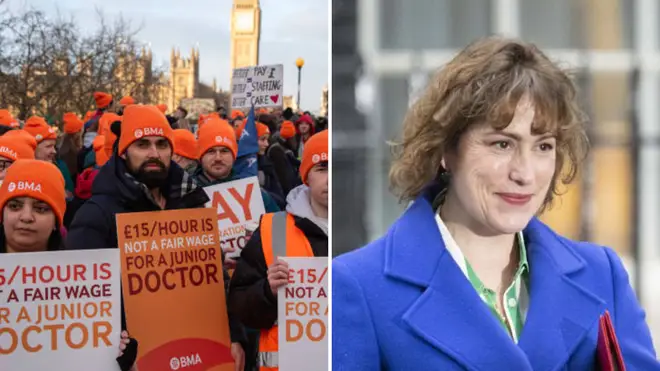
The Health Secretary has told striking junior doctors that the NHS belongs to everyone in the UK, and warned that the health service cannot be "switched on and off on whim".
Victoria Atkins told junior doctors that she would restart pay talks within 20 minutes if the strikes were called off, as it emerged that their union had refused several urgent requests for medics to return to work on the first day of the walkouts.
In an agreement between the British Medical Association (BMA) and the NHS, junior doctors can be asked to return to their jobs if there are patient safety concerns.
But the BMA has accused NHS managers of "misusing the requests", and rejected most of them because they were not made properly.
The NHS has repeatedly said that the week that junior doctors have chosen to strike - in the longest bout of industrial action in the health service's history - could be especially damaging.
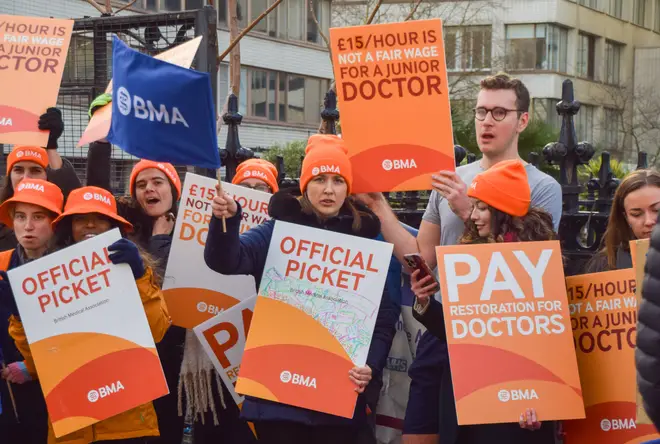
High rates of winter viruses affecting staff as well as patients, and a wave of people coming forward after not seeking treatment over Christmas, have put particular pressure on the NHS in the first week of the year.
Ms Atkins said on a visit to the London Ambulance Service: "I've said throughout this that, please, to the junior doctors' committee, the moment you call off the strikes, I'll get back around the table with you within 20 minutes."
She added: "The NHS belongs to us all. It doesn’t just belong to the junior doctors committee, and for the 1.3 million people who work in the NHS — as well of course for the tens of millions of people it looks after — the NHS cannot be switched on and off on whim."
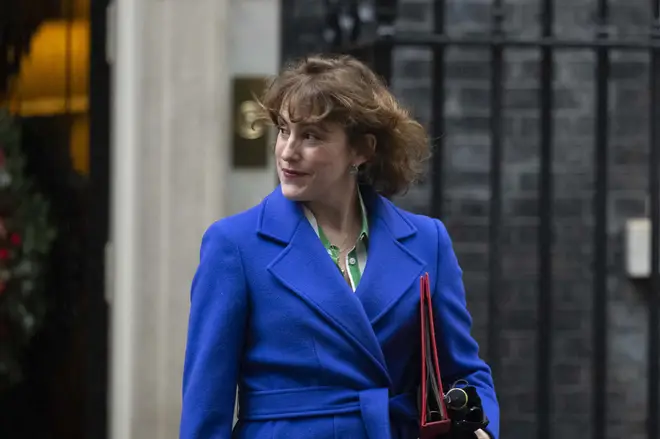
The BMA said that in order to recall doctors from the picket line, trusts must show that they have "exhausted all other sources of staffing", by cancelling more planned care or offering higher paid overtime payments to staff.
In a letter to the chief executive of NHS England Amanda Pritchard, sent on Wednesday evening, Professor Philip Banfield, chairman of the BMA council, said that the trusts were not sending evidence they had taken these steps
Some hospitals had applied for exemptions in December "before alternative solutions could be pursued", Professor Banfield wrote, adding that some consultants in departments requesting exemptions said they were safely staffed.

Ben Kentish criticises the government for doing a 'shambles of a job' in resolving the strike action
He added that the change in approach was the "politicisation and weaponisation of a safety critical process" to justify the government’s minimum service regulations, restricting the number of doctors able to join strikes.
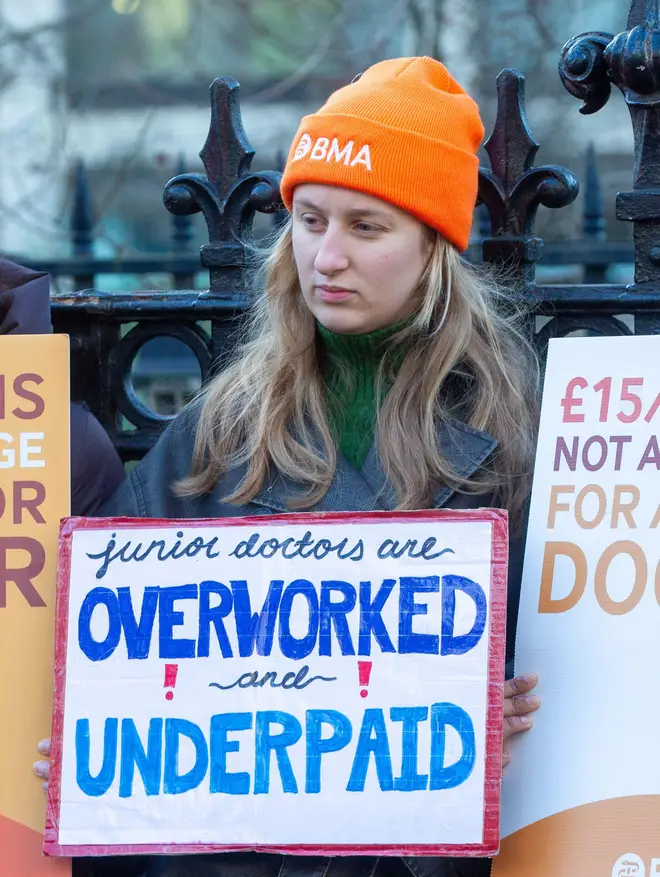
But NHS executives have insisted that the requests are being made out of concerns for patient safety during the winter months.
According to The Times, some of these come from A&E and maternity units.
One senior NHS leader told the paper: "With great respect to the leaders of the BMA junior doctors’ committee, I’ve been doing this a lot longer than they have.
"This week is rubbish. It’s always rubbish. It’s been rubbish since I was their age."
"These are requests that are being made by jobbing experienced medical directors in individual organisations.
"They’re not doing that lightly and they’re not doing it because they’ve been leant on by a politician."
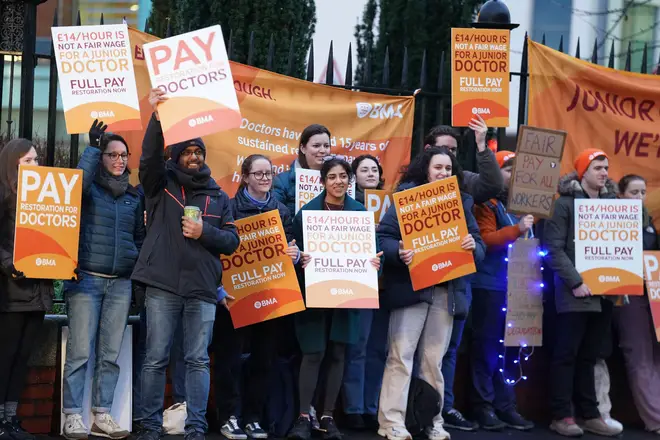
Numerous hospitals are reporting lengthy waiting times in emergency departments.
The Queen Alexandra Hospital in Portsmouth, NHS Nottingham and Nottinghamshire integrated Care board declared critical incidents.
On the first day of the strike, over a dozen hospitals reported that emergency services were busy.
Other hospitals recorded "extreme heightened pressure" and “being exceptionally busy" and one hospital reported their A&E has a wait time of up to "11 hours".
The junior doctors want more money, and processes in place to keep pay rises coming in future.
They say they are striving to protect the future of the NHS, as overworked staff are suffering burnout and leaving to work in other countries.
They were given an 8.8% pay rise in the summer and offered a further 3% increase during recent negotiations near the end of 2023.
The BMA turned the increase down because they claimed it did not compensate for the real-term pay cut its members have endured since 2008.
The union is seeking "pay restoration" to 2008 levels, which it has estimated as the equivalent of a 35% pay rise.
Striking junior doctors also want a mechanism that would prevent any real-term future pay cuts against inflation and the cost of living.
As well as this, they are demanding a reformed independent review body for doctors' and dentists' pay recommendations that they say would "safeguard recruitment and retention of junior doctors".
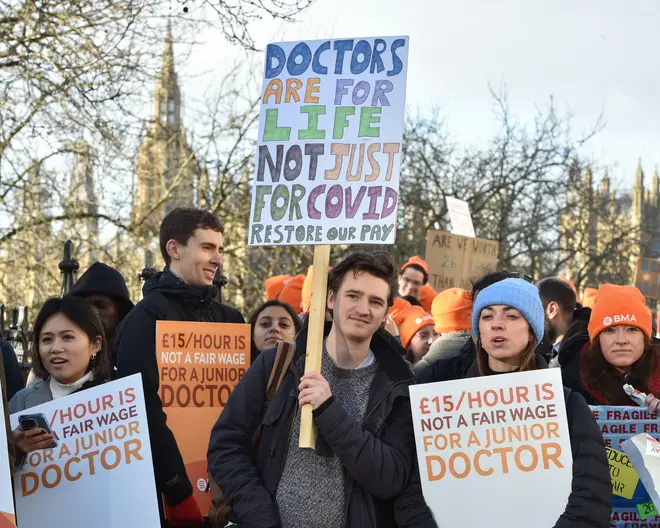
Professor Sir Stephen Powis, the NHS' medical director, said: "Six consecutive days of industrial action comes at one of our busiest periods - the action will not only have an enormous impact on planned care, but comes on top of a host of seasonal pressures such as COVID, flu, and staff absences due to sickness - all of which is impacting on how patients flow through hospitals.
"Our colleagues across the health service are doing their very best for patients every day, with extensive preparations in place, but there's no doubt they are starting 2024 on the back foot."
Dr Layla McCay, director of policy at the NHS Confederation, told LBC's Nick Ferrari that the strikes may present the health service's "toughest challenge yet".

Dr Layla McCay: NHS 'skating on thin ice' under current staffing crisis
She said: "In order to maintain patient safety as much as possible, and get people the care they need as quickly as possible, all the resources available will be concentrated in the most urgent and emergency care. And that means that lots of other care will need to be postponed."
If you are ill, you should still seek medical attention despite the strikes.
GP and pharmacy services will be unaffected by the walkouts, and people are being urged to use these services as they would normally.
Patients can also use 111 online, or call 111.